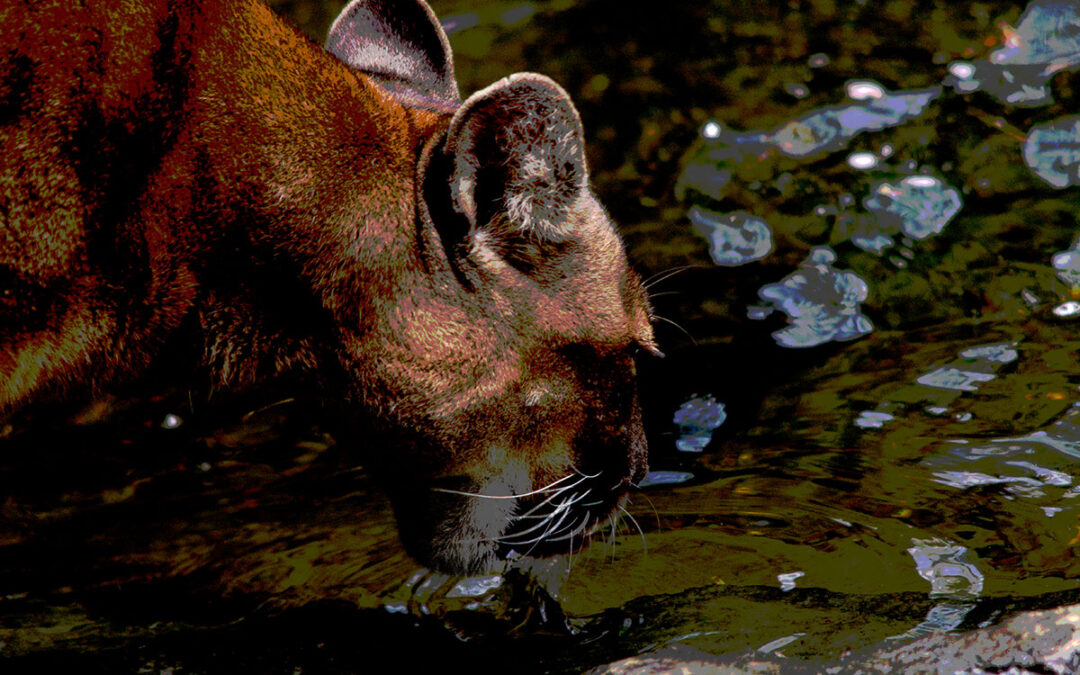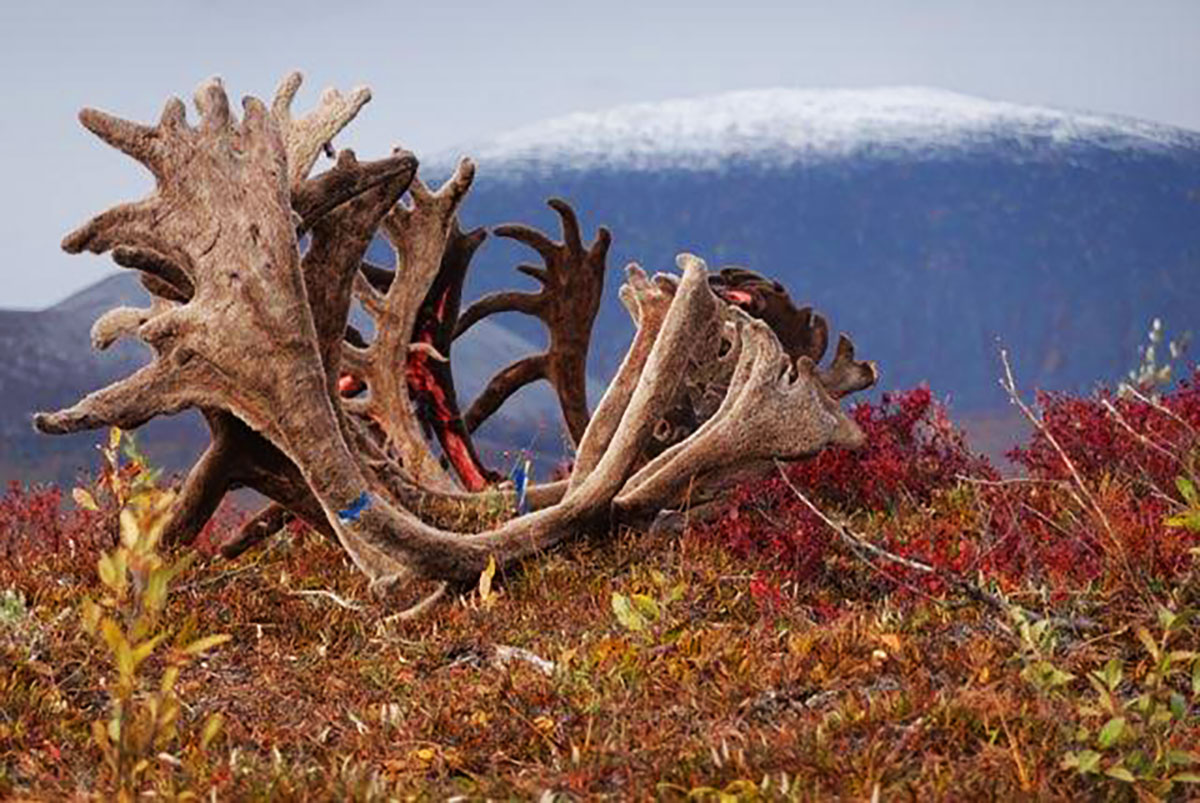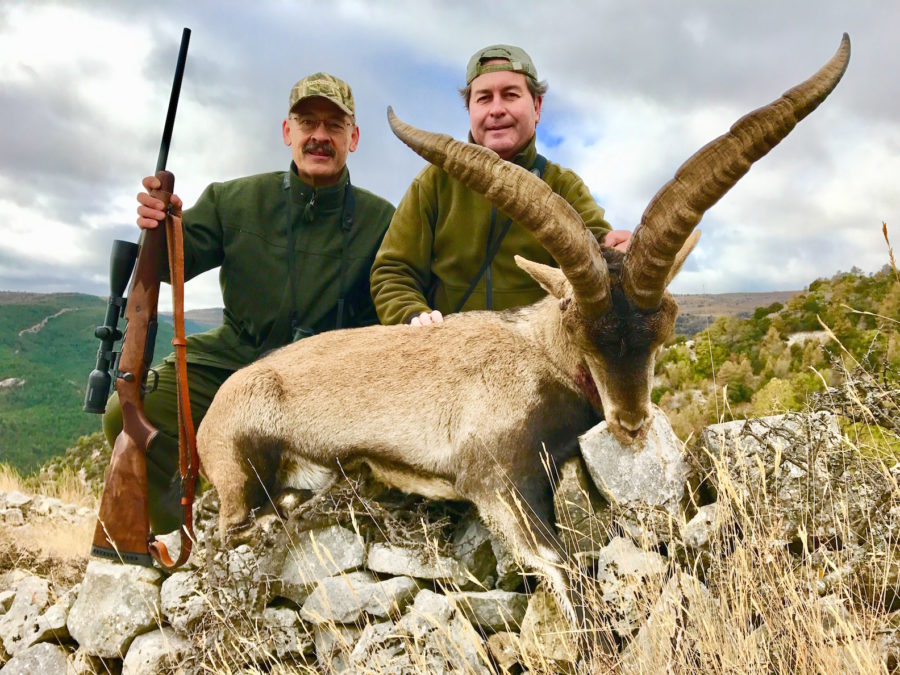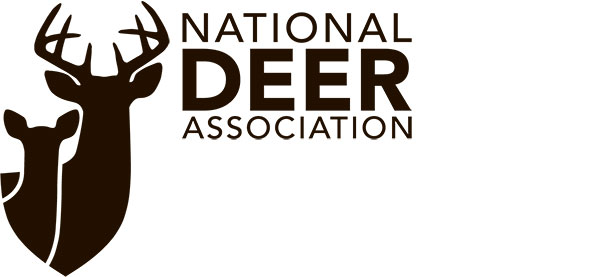Willard, it’s time. I want to track one more mountain lion, maybe kill it. I’ve got this feeling!
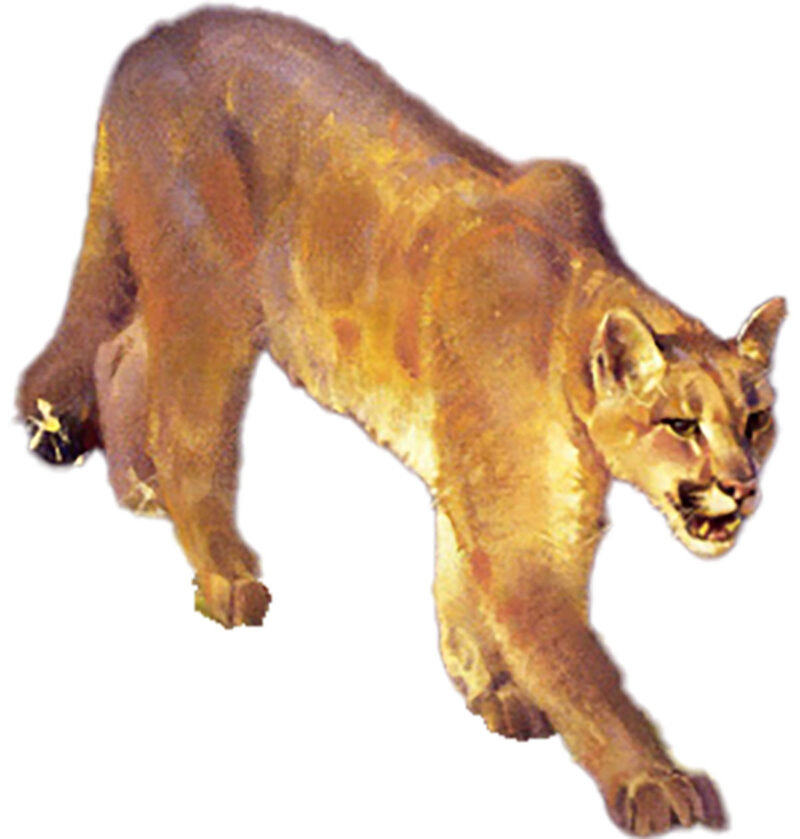 Somewhere in the forest came the warbling song of a night bird. Melodic, sweet sounds, but urgent and unanswered. It was quiet after that, except for the gentle breeze that played among the trees, mingling with the sound of water. Leaf greens of aspens and lodge-pole pines in the October dawn seemed to drip colors into clear pools along the Gallatin River in Montana.
Somewhere in the forest came the warbling song of a night bird. Melodic, sweet sounds, but urgent and unanswered. It was quiet after that, except for the gentle breeze that played among the trees, mingling with the sound of water. Leaf greens of aspens and lodge-pole pines in the October dawn seemed to drip colors into clear pools along the Gallatin River in Montana.
Trailing moss beneath the water’s surface played among ancient rocks and fluttered above pebbles and sand in the gentle current, hiding native trout. Mist rose off treetops from the rain that had fallen during the night, like smoke from a hundred campfires. An aroma lifted off the stream bank — eternal and remembered, nature’s gifts, delicate scenes and scenes that men seek and understand, and find only in wilderness.
Willard looked across the creek to where he knew Nils sat silent, finding it difficult to pick him out amidst the foliage. They had gone to the river just before midnight when wind and rain muffled their descent, washed away tracks and drowned their scent. It had been two days since they’d spotted tracks where the mountain lion had come to drink, crossing over when she was done and disappearing into quaking aspens and mountain meadows.
They’d camped two miles from the spot and this was their second night’s vigil for two men huddled in green ponchos, one bent on shooting a cougar, the other watchful, worried about his friend.
Nils sold a camera shop in Sacramento, California in 1950 at the age of 65, and Willard, his next-door neighbor, writer for the Sacramento Bulletin, retired that same year at 63.
After retirement Willard saw his friend slowly disappear into himself and then reemerge, he knew that Nils was driven by something. The note came in May of 1955, mailed and delivered by a post office letter carrier one address away.
Willard, it’s time. I want to track one more mountain lion, maybe kill it. I’ve got this feeling!
Nils Willard slipped the worn sheet of paper from his pocket and read the words again without seeing them, for he knew them by heart. He felt a cold in his belly that no fall morning mist could settle there. He thought about their 30-year friendship, the delivered note and Nils Walker’s unwillingness or inability speak words of explanation, that one time.
The cougar appeared without sound or warning. One minute the creek’s bank was void of any living thing, and then she was there. Willard guessed her to be between four and six years old. Big, fluid and in her prime as she stood upwind from them not 50 feet away. One ear was split. Dark scars on her shoulder and head. She looked directly at Willard for a time not seeing him, then lowered her body on spring-steel legs, bent her head toward cold water and drank, her red tongue lapping up the life-giving liquid in noisy slurps.
The sights of Willard’s Winchester rifle settled on the cougar, his finger curled at the trigger, waiting. When the sound came, it was unexpected, out of character, but accepted.
Bang!
The mountain lion exploded up away from the river in a blur of tawny brown motion, leaving behind a cascade of water droplets suspended in midair after her passing. An eyeblink’s span was all the time it took for her to disappear among aspens, tail high, shifting as she changed direction, shoulder and hip muscles driving her in 30-foot bounds.
Neither man moved for a long time, satisfied to remain silent — each lost in his own thoughts and feelings. Willard felt tears trickle down his cheeks into hair by his upper lip and was unashamed at their coming. He tasted salty wetness and finally moved a gloved hand up to wipe them away. He eased himself up off the ground by degrees to a chorus of creaking bones and low moans. Nils was standing too, gently stretched cramped muscles, unaccustomed to such long absence of motion.
”You get buck fever?” Willard asked, his voice soft but carrying far.
Nils took his time. “She didn’t even know we were here. God! Ain’t that something?”
”Thought you wanted to shoot a lion?”
“Did, but couldn’t. Not that one, probably never again,” Nils said, as he moved toward the water.
Willard waded into the river and felt the pull of the current against his legs. He felt a boy’s joy as he moved, watching Nils’ face, feeling the movement of the earth in the river, the current unique, complicated and urgent in its journey, and felt something else, they were standing close by then, and could read each other’s eyes. Knowing glances between old friends satisfied with their lives, and thankful in the knowledge that the moment bad been shared — each seeing and feeling it differently, but sure and confident in the moist-eyed looks passed back and forth.
“I suppose you’ll be wanting to travel to Africa, hunt a rhino and not shoot him either,” Willard said.
Nils smiled. “If I do, you’ll be there, too.”
Willard nodded, grinned. “We hunt rhino, one of us better shoot. We need to toast that cougar.”
“Tomorrow, after we’ve had sleep.” Nils stared at the spot where the mountain lion had vanished, nodded and turned toward camp.
Willard got up shortly after sunrise, broke his tent down and packed his gear. Cowboy coffee boiled in a blackened pot over the fire as Willard waited for Nils. After a while he went over and kicked at the side of his friend’s tent. “Old man, it’s time to go.”
There was no answer. He kicked again, harder. Nothing stirred inside the tent. Willard bent down and unzipped the tent door. There lay his friend in that peaceful sleep he would not wake from.
“Damn,” Willard said, softly. “You had a feeling about dying, didn’t you.”
He knew Nils would want it that way, out in the back county, someplace where he could feel wind in his hair. They had talked about dying a few times long ago. Before retirement, but it didn’t make the pain any easier. Had the trip been worth it? Yeah, he thought. Yeah! It was after dark when a gray-bearded, long-haired old man entered the Cattleman’s Bar in Livingston, and quietly ordered a round of drinks from the bartender’s best bottle.
“Leave it on the bar, I might want another.”
Willard walked toward five men sitting on barstools in scuffed boots, Levi’s, colorful western shirts, long black dusters and tall, sweat-stained hats on their heads.
“A 70-year-old old man died in his sleep this morning on the Gallatin. His name was Nils Walker, my friend. We’d planned on standing here drinking a toast. I’d be obliged if you’d share that toast with me.”
The oldest of the men spoke. “Old-timer, you say the words and we’ll do the honors.”
Willard’s eyes grew shiny bright as tears welled and ran down his cheeks. He didn’t look away from the hard-eyed men staring at him. His voice came soft, but clear. ‘To Nils, and to the spirit of the mountain … the ghost cat … the cougar.”
Glasses touched sudden and final as each man downed his shot glass of raw whiskey. The cowboy who’d spoken reached for the bottle and filled the glasses full again. “Mister, if you don’t mind, I’d like to do that one more time.”
“No sir, I don’t mind,” Willard said.
Glasses were raised again as the square-jawed cowman spoke. “And to the Hombre who rode the trail with him.”
They took their whiskey straight up and neat that night in a frontier cattle and rail town. Outside, a horned moon sung above the Beartooth and Crazy mountains, and wind-swept stars danced like fireflies across the black hearth of the Montana sky.
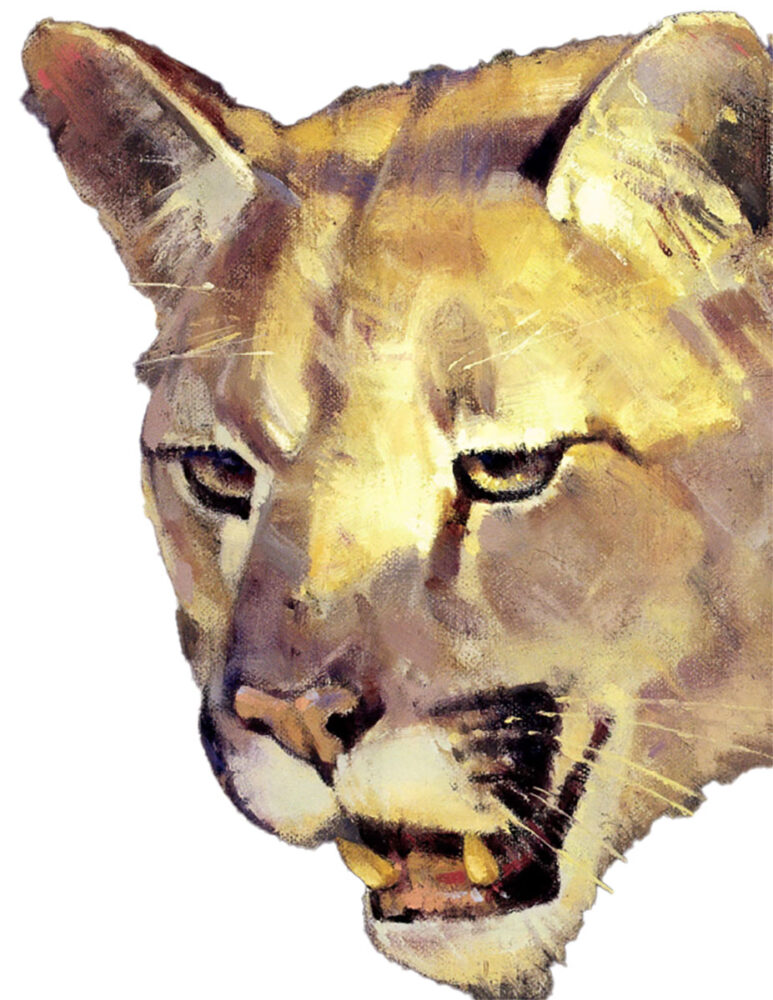 Along the Gallatin River, there remained what had always been — the sound of water and the gentle rustling of wind in trees in a land filled with earthly splendor.
Along the Gallatin River, there remained what had always been — the sound of water and the gentle rustling of wind in trees in a land filled with earthly splendor.
And one other sound, faint as the fall of a feather, as the ghost cat inspected the sites where two men had hidden, then left her mark and moved to the liver. With delicate nostrils flared, she sampled the tainted wind, lowered herself … and drank.
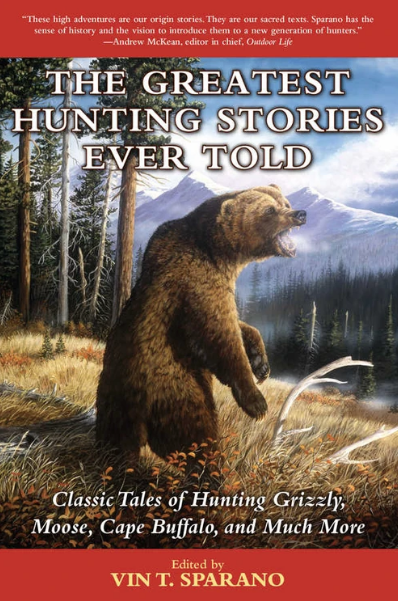 Collected by a lifelong devotee of hunting literature, the stories here are classics. In more than two dozen selections, the true experiences of hunting a variety of animals are relayed by the most reliable eyewitnesses: the hunters themselves. A must for all hunters and armchair adventurers, The Greatest Hunting Stories Ever Told is a real trophy. Buy Now
Collected by a lifelong devotee of hunting literature, the stories here are classics. In more than two dozen selections, the true experiences of hunting a variety of animals are relayed by the most reliable eyewitnesses: the hunters themselves. A must for all hunters and armchair adventurers, The Greatest Hunting Stories Ever Told is a real trophy. Buy Now

